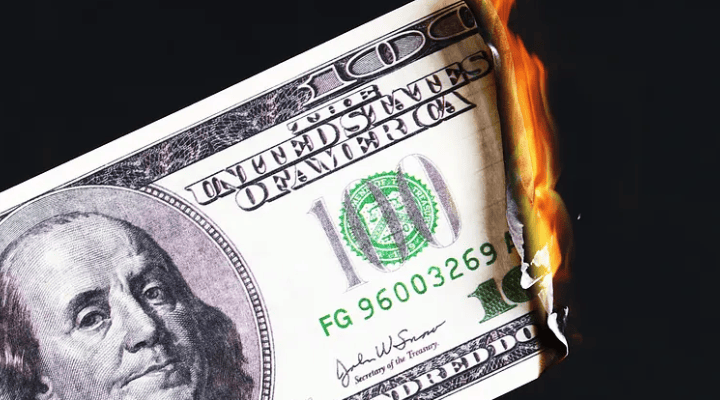The U.S. House of Representatives narrowly passed a bill that would raise the government’s debt ceiling to $31.4T and enforce significant spending cuts over the next ten years. The bill proposes to increase Washington’s borrowing authority by $1.5T until March 31, 2024, or until the deadline expires.
Additionally, the legislation aims to reduce spending to 2022 levels, cap growth at 1% annually, eliminate specific tax incentives for renewable energy, and toughen work requirements for specific antipoverty programs.
Despite the bill’s expected rejection by the Senate and President Joe Biden’s veto, it sends a clear message that the U.S. economy is struggling to keep up. Why is this important for crypto? Let’s find out!
What’s the Benefit for Crypto?
In spite of the anti-crypto agenda, the recent decline of the banking system and the US dollar has further separated Bitcoin and other cryptocurrencies from the centralized economy. The correlation between crypto, especially Bitcoin, and blue-chip stocks has gradually vanished. The culmination of this trend occurred during yesterday’s second downward movement of the Nasdaq and S&P500 when the markets moved in opposite directions.
If US macroeconomic conditions continue to persist, there may be a good chance of separating the cryptocurrency market from the stock market and, thus, the US economy. This would represent the ultimate achievement for crypto, marking a new era for Bitcoin as a store of value.
Moreover, the growing debt is eroding the public’s confidence in traditional financial systems and institutions. Increasingly, wealthy and powerful Americans are turning to crypto as a superior store of value compared to deposited USD. With inflation skyrocketing and banks collapsing like flies, they lose money faster than they can ever make it.
It is uncertain if US politicians comprehend the severity of their current economic situation. Failure to act promptly could lead to the risk of default. While it is unlikely that the US would default on its debt, the possibility still exists. If the US were to default, it could result in a catastrophic economic crisis with far-reaching consequences for the US and the global economy.
What Will Happen with the Economy?
Yes, the crypto industry will only have to win after the US economy will hit the debt ceiling again. People will only view crypto and Bitcoin as the next step in the economic evolution and will only pour more and more money into Web3. But, what will happen with the remaining part of the economy?
The rapidly growing US debt presents significant challenges for both the country and its citizens. One of the major concerns is the mounting interest payments that the government must make as the debt increases. As a result, an increasingly substantial portion of the federal budget is directed toward servicing the debt, which leaves fewer resources to allocate toward critical government programs such as education, infrastructure, and healthcare.
Another issue is the concept of crowding out. This phenomenon arises as the government’s borrowing competes with other borrowers for available funds, thereby driving up interest rates for everyone, including businesses and consumers. The increase in interest rates can make it more challenging for them to obtain loans, which can ultimately lead to a decrease in investment and economic growth, thereby further harming the overall economy.
Moreover, the US debt is essentially a burden on future generations. As the debt increases, so do the interest payments that future generations will be required to make, thereby limiting their ability to invest in their own priorities and leaving them with less financial flexibility.
Closing Thoughts
Overall, the rapidly growing US debt poses a severe challenge to the country’s economic stability and financial health. To ensure a stable and prosperous future for the country and its citizens, it is crucial for the government to take appropriate measures to reduce the debt and manage its finances responsibly.

 English
English
 Deutch
Deutch
 Espanol
Espanol
 Francais
Francais
 Portugues
Portugues
 日本
日本
 한국인
한국인
 Türk
Türk
 Русский
Русский
 Tiếng Việt
Tiếng Việt

